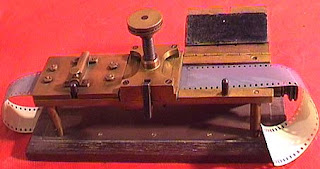I hope all of you had a relaxing vacation! I wanted to address an issue that has been clogging my inbox. Many students have inquired about switching to the Digital Filmmaking program that will begin in January of 2010. Here are some factual points that will help in your decision making.
1. The fundamental difference between both programs are as follows: 1 additional General Education class, 1 less TV production class, a Mid program review, and a rearrangement of pre-requisite classes. The program outcomes and mission statement are the same.
2. If you are a video production student looking to switch you will encounter the following problems:
a. Not all video production classes will transfer because of the re-sequence. While the courses are the same in content, the pre-requisites change the way the skills are taught.
b. Upper level courses will only be offered as the program rolls out, only first quarter DF courses will be available WI10. For example: If a 5th quarter student transfers to DF, that student will need some 5th quarter classes. That student will NOT be able to take those courses for another year, therefore delay graduation.
c. Students who are in the process of working on their thesis projects may have to restart the thesis approval with the new criteria.
Please review and consider this information before contacting me in regards to switching programs. Thank you! I hope this helps with any questions you are considering.
- Eve Okupniak






